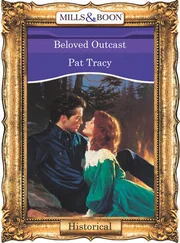"That way," he said, pointing. "Follow the tree flowers," he said.
"Only the tree flowers. As they go, you go. You will be where you want to be when they are gone."
So he raced from dogwood to blossoming peach. When they thinned out he headed for the cherry blossoms, then magnolia, chinaberry, pecan, walnut and prickly pear. At last he reached a field of apple trees whose flowers were just becoming tiny knots of fruit.
Spring sauntered north, but he had to run like hell to keep it as his traveling companion. From February to July he was on the lookout for blossoms. When he lost them, and found himself without so much as a petal to guide him, he paused, climbed a tree on a hillock and scanned the horizon for a flash of pink or white in the leaf world that surrounded him. He did not touch them or stop to smell. He merely followed in their wake, a dark ragged figure guided by the blossoming plums.
The apple field turned out to be Delaware where the weaver lady lived. She snapped him up as soon as he finished the sausage she fed him and he crawled into her bed crying. She passed him off as her nephew from Syracuse simply by calling him that nephew's name.
Eighteen months and he was looking out again for blossoms only this time he did the looking on a dray.
It was some time before he could put Alfred, Georgia, Sixo, schoolteacher, Halle, his brothers, Sethe, Mister, the taste of iron, the sight of butter, the smell of hickory, notebook paper, one by one, into the tobacco tin lodged in his chest. By the time he got to 124 nothing in this world could pry it open.
SHE MOVED HIM.
Not the way he had beat off the baby's ghost-all bang and shriek with windows smashed and icily iars rolled in a heap. But she moved him nonetheless, and Paul D didn't know how to stop it because it looked like he was moving himself. Imperceptibly, downright reasonably, he was moving out of 124.
The beginning was so simple. One day, after supper, he sat in the rocker by the stove, bone-tired, river-whipped, and fell asleep.
He woke to the footsteps of Sethe coming down the white stairs to make breakfast.
"I thought you went out somewhere," she said.
Paul D moaned, surprised to find himself exactly where he was the last time he looked.
"Don't tell me I slept in this chair the whole night."
Sethe laughed. "Me? I won't say a word to you."
"Why didn't you rouse me?"
"I did. Called you two or three times. I gave it up around midnight and then I thought you went out somewhere."
He stood, expecting his back to fight it. But it didn't. Not a creak or a stiff joint anywhere. In fact he felt refreshed. Some things are like that, he thought, good-sleep places. The base of certain trees here and there; a wharf, a bench, a rowboat once, a haystack usually, not always bed, and here, now, a rocking chair, which was strange because in his experience furniture was the worst place for a good-sleep sleep.
The next evening he did it again and then again. He was accustomed to sex with Sethe just about every day, and to avoid the confusion Beloved's shining caused him he still made it his business to take her back upstairs in the morning, or lie down with her after supper. But he found a way and a reason to spend the longest part of the night in the rocker. He told himself it must be his back- something supportive it needed for a weakness left over from sleeping in a box in Georgia.
It went on that way and might have stayed that way but one evening, after supper, after Sethe, he came downstairs, sat in the rocker and didn't want to be there. He stood up and realized he didn't want to go upstairs either. Irritable and longing for rest, he opened the door to Baby Suggs' room and dropped off to sleep on the bed the old lady died in. That settled it-so it seemed. It became his room and Sethe didn't object-her bed made for two had been occupied by one for eighteen years before Paul D came to call. And maybe it was better this way, with young girls in the house and him not being her true-to-life husband. In any case, since there was no reduction in his before-breakfast or after-supper appetites, he never heard her complain.
It went on that way and might have stayed that way, except one evening, after supper, after Sethe, he came downstairs and lay on Baby Suggs' bed and didn't want to be there.
He believed he was having house-fits, the glassy anger men sometimes feel when a woman's house begins to bind them, when they want to yell and break something or at least run off. He knew all about that-felt it lots of times-in the Delaware weaver's house, for instance. But always he associated the house-fit with the woman in it. This nervousness had nothing to do with the woman, whom he loved a little bit more every day: her hands among vegetables, her mouth when she licked a thread end before guiding it through a needle or bit it in two when the seam was done, the blood in her eye when she defended her girls (and Beloved was hers now) or any coloredwoman from a slur. Also in this house-fit there was no anger, no suffocation, no yearning to be elsewhere. He just could not, would not, sleep upstairs or in the rocker or, now, in Baby Suggs' bed. So he went to the storeroom.
It went on that way and might have stayed that way except one evening, after supper, after Sethe, he lay on a pallet in the storeroom and didn't want to be there. Then it was the cold house and it was out there, separated from the main part of 124, curled on top of two croaker sacks full of sweet potatoes, staring at the sides of a lard can, that he realized the moving was involuntary. He wasn't being nervous; he was being prevented.
So he waited. Visited Sethe in the morning; slept in the cold room at night and waited.
She came, and he wanted to knock her down.
In Ohio seasons are theatrical. Each one enters like a prima donna, convinced its performance is the reason the world has people in it.
When Paul D had been forced out of 124 into a shed behind it, summer had been hooted offstage and autumn with its bottles of blood and gold had everybody's attention. Even at night, when there should have been a restful intermission, there was none because the voices of a dying landscape were insistent and loud. Paul D packed newspaper under himself and over, to give his thin blanket some help. But the chilly night was not on his mind. When he heard the door open behind him he refused to turn and look.
"What you want in here? What you want?" He should have been able to hear her breathing.
"I want you to touch me on the inside part and call me my name."
Paul D never worried about his little tobacco tin anymore. It was rusted shut. So, while she hoisted her skirts and turned her head over her shoulder the way the turtles had, he just looked at the lard can, silvery in moonlight, and spoke quietly.
"When good people take you in and treat you good, you ought to try to be good back. You don't… Sethe loves you. Much as her own daughter. You know that."
Beloved dropped her skirts as he spoke and looked at him with empty eyes. She took a step he could not hear and stood close behind him.
"She don't love me like I love her. I don't love nobody but her."
"Then what you come in here for?"
"I want you to touch me on the inside part."
"Go on back in that house and get to bed."
"You have to touch me. On the inside part. And you have to call me my name."
As long as his eyes were locked on the silver of the lard can he was safe. If he trembled like Lot's wife and felt some womanish need to see the nature of the sin behind him; feel a sympathy, perhaps, for the cursing cursed, or want to hold it in his arms out of respect for the connection between them, he too would be lost.
"Call me my name."
"No."
"Please call it. I'll go if you call it."
Читать дальше











